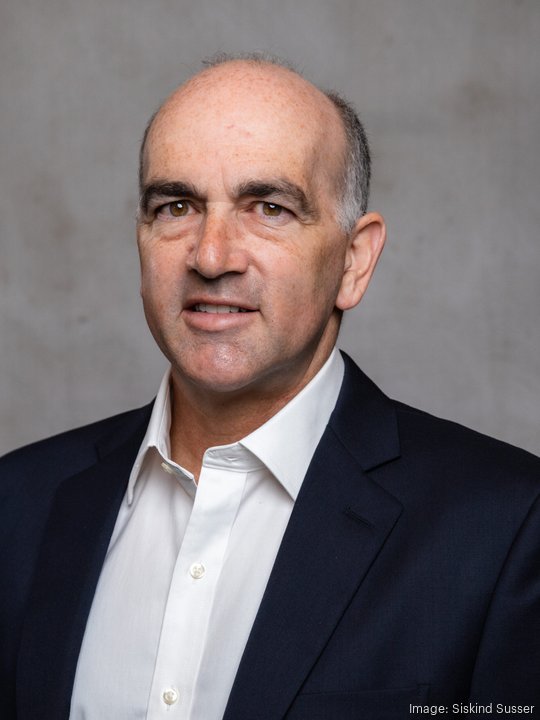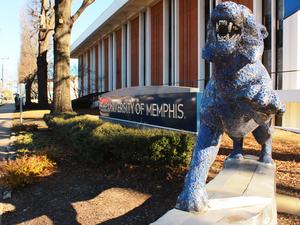
FedEx. Holiday Inn. AutoZone. What do those disparate national brands have in common? As upstart companies, they all trace their origins to Memphians, who believed in the fundamentals of their startups and in the potential of their innovations.
Indeed, the Bluff City has seen the beginnings of the blues by way of Beale Street and rock ‘n’ roll via Sun Studio, and in the business realm, self-service grocery stores got their model in Piggly Wiggly over 100 years ago.
And, while the Memphis startup scene is nascent and was significantly buffeted by the pandemic, there are innovative local startups with the potential to grow into transformative businesses.
Memphis Inno highlights such newly launched firms through MBJ’s Startups to Watch. Memphis Inno, powered by Memphis Business Journal, is presented by the Tennessee Small Business Development Centers.
In keeping with the disparate trend, this year’s Startups to Watch profiles include a medical device disruptor in the surgical space, a legal tech platform exploring the artificial intelligence (AI) landscape — profiled below — and a firm handling a potentially era-setting material with properties that could be applied across a wide range of applications.
Visalaw.Ai
Visalaw.Ai is a local startup from the class of 2020. The company spun out of immigration law firm Siskind Susser that year, though Visalaw.Ai’s genesis dates back to 2016 and, in some respects, to Siskind Susser’s tech-forward focus from inception. The firm had a first-of-its-kind immigration law website in the mid-1990s.
Visalaw.Ai was born out of a desire to automate internal processes. Siskind Susser partners Greg Siskind, Lynn Susser, and Jason Susser, plus innovation officer Josh Waddell launched the startup to offer that automation to other law firms. “There are [about] 15,000 immigration lawyers in the U.S.,” Jason Susser said. “Most of them are in solo to small law firms, so most immigration lawyers in the U.S. are not big enough to develop their own technology,” Jason Susser told MBJ in 2021.
As with any other startup, the ability to adjust even fundamental aspects of a developing business can mean the difference between success and failure. And, while an already successful law firm provided a base, generative AI, such as ChatGPT, resulted in Visalaw.Ai’s leadership reimagining its place in a new artificial intelligence landscape.
Memphis Business Journal queried Greg Siskind on how Visalaw.Ai has progressed since 2020 and what the future holds. The following Q&A with Siskind has been edited for brevity and clarity.

MBJ: What is the most important guiding principle for a startup today (lean growth, move fast, break things, or something else)?
Greg Siskind: I don’t think there’s a single principle that is right for every company. Move fast and break things might be fine for a social media company, but for a legal tech, fintech, or health tech, where a product’s quality, security, and reliability are critical, moving carefully may be more important. However, something that’s guided us is that we should be flexible and not afraid to pivot if an opportunity emerges. That certainly happened in 2022 when generative AI emerged, and we had to essentially rewrite our company’s whole business plan.
Where do you hope to have your company six months from now? A year from now?
We launched a major AI product aimed at immigration lawyers in January that will hopefully have a sizable user base by the summer. But our bigger plan for scaling is to take the AI platform we built and mold it to one that is used by lawyers in all specialties. And we are working on an AI-drafting product for lawyers. Those newer products will debut in the coming months and will hopefully have a large number of users by next year. We will have to have our company’s staff increase as well to be able to manage the growth.
What is the biggest challenge your company has overcome so far as a startup?
We have been able to operate without debt and outside investors since we started a few years ago. But as generative AI opportunities have emerged, we’ve elected to pursue a much faster and more ambitious plan, requiring us to take bigger risks and move more quickly than we have in the past.
What is the current funding environment like for startups?
We’ve had the advantage of having had the early support of Siskind Susser, the law firm that spun us off a couple of years ago, so we did not have the same funding worries as other companies — at least, until this past year, when our plans accelerated. We were able to initially work with our bank to supplement our working capital and build out our product without having to find outside investors. Part of that, again, was having a good reputation and relationships we could leverage. Now we are considering taking on outside investors, but we are doing so with a built product with actual customers, so we are approaching investors in a stronger position than just having an idea. That’s allowed us to avoid the typical Silicon Valley funding route of depending entirely on finding investors and having to move quickly under a lot more outside direction. That approach put us in a stronger position to be able to build out our AI product and go to market within a few months of our product idea.









